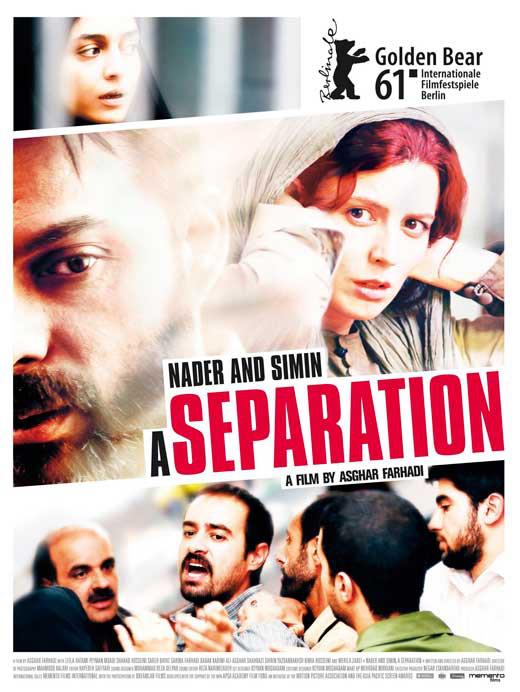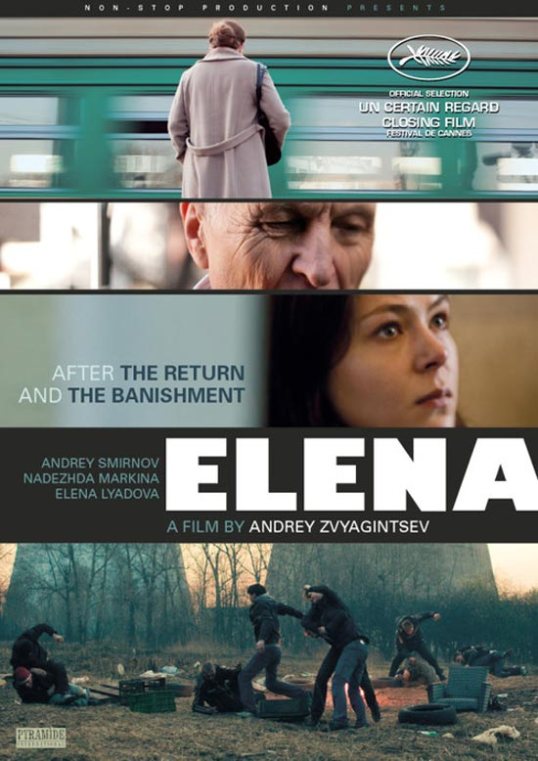As they are being released from prison, a young woman and a young man, both musicians, decide to assemble a band. They travel Tehran meeting with other underground musicians and try to convince them to leave Iran. Not having any chance to play in Tehran, they dream of leaving to play music in Europe. But that’s hard to make happen without money and a passport…(Mubi)
After being released from jail, Negar and Ashkan, two young Iranian songwriters, decide to set up an underground band and look for other musicians to join them. But the authorities keep putting a spanner in the works. Fed up with being hindered from expressing themselves the two young people try to get documents to leave the country for Europe… (Imdb)
No One Knows About Persian Cats Review
Catchy indie rock and affronts to theocracy make Bahman Ghobadi’s No One Knows About Persian Cats a captivating treat
WRITTEN BY NICOLAS RAPOLD
Musicians on the move crop up throughout the work of Bahman Ghobadi. In his last feature, Half Moon (06), a generously mustachioed Kurdish family band attempts to make its way to a concert in Iraq, and Ghobadi nudges their road-movie travels and travails into the realm of the kind of mystical fantasy that could one day be put into song. In No One Knows About Persian Cats, the would-be travelers are a couple of Tehran indie-rockers looking to emigrate to somewhere that doesn’t demand endless permits or frown upon women singing solo. After ordering travel documents from a black-market dealer, they spend the nebulous waiting-period hooking up with other bands, providing the pretext for a multiple-performance sampler of their city’s Western-flavored underground music scene. While it’s less informative than a straight-up documentary survey like Fatih Akin’s Crossing the Bridge, the enthusiasm of Ghobadi and his various young co-conspirators is infectious, and the music is generally catchy and occasionally excellent. But what really distinguishes the film—banned in Iran, it goes without saying—is the enormous risks these musicians take, which Ghobadi ultimately drives home with legitimate dramatic license.
The indie duo, Negar and Ashkan, are “played” by a subdued Negar Shaghaghi and Ashkan Koshanejad, aka Take It Easy Hospital—and like other bands on display, they are left unnamed. Their sometime guide throughout the city’s secret byways is a cheerful culture hustler named Nader (Hamed Behdad), who, though less frequently on screen, ties together the film’s sense of musical solidarity, within and across genres (traditional, pop, fusion). Ghobadi records the performers this trio drop in on either in situ (tiny lounges and clubs) or in a music-video variety of settings: Farsi-singing heavy-metalheads on a farm, a balladeer in the classroom where he teaches Afghan and Iraqi orphans, clunky rappers in a skeletal construction site, a sister act rendering transcendent classical Persian song before an intimate living-room audience (nonetheless forbidden because they are women performing for mixed company). The sequences are often edited to the music’s rhythms, with mixed results: one zippy montage of cutaways to the urban homeless feels too much like a cut-rate video to have much impact.
Ghobadi himself appears briefly in the background of the story’s recording studio-set prologue: he’s referred to as someone trying to unwind by laying down a few tracks since his last movie is now being sold on the street by bootleggers instead of being shown in theaters. And of course the Kurdish-Iranian Ghobadi’s making of the film is part of the drama behind the energetic music performances on display: shooting for 17 days without permission, getting arrested twice, and on top of everything dodging potshots from huffy elder statesman Abbas Kiarostami (who might do better to re-focus his energies on filmmaking). Again, Nader becomes an effective proxy for the resilience of suppressed artists: in a riveting scene shot through a cracked-open door, he alternately begs, cajoles, and rages at an off-screen government official who has penalized him for selling DVDs by imposing heavy fines—and then, having secured a settlement, encourages him to watch the artistic films again, more closely, with an open mind.
Negar and Ashkan gain a spotlight for their peppy, diligently cribbing English-language song “Human Jungle.” Like some of the film’s other Westernized numbers, the tune underlines the shifting disjunctions between their competent but standard-issue vintage, the outsized repression bearing down on them, and the novelty of pop clichés about rebellion suddenly being imbued with real meaning. But Ghobadi has other, more sober plans in store for the duo’s screen alter egos, foreshadowed by a shocking, incongruous episode involving their dog and the cops. As in so many of his other films, the freedom accorded the furthest reaches of artistic fancy inexorably collides with earthly realities.
http://www.filmcomment.com/article/no-one-knows-about-persian-cats-review
No One Knows About Persian Cats (2009)
Mijfilm/IFC Films
A scene from the Iranian director Bahman Ghobadi’s new film, “No One Knows About Persian Cats,” which Mr. Ghobadi wrote with his fiancée, the journalist Roxana Saberi.
Band on the Run, Filmed on the Fly
Negar and Ashkan are two young people — it’s possible that they’re a couple, but you can’t quite be sure — who want to start a band. The style they favor is what they call indie rock, an apt enough designation for the sweet, moody songs they perform together, which would not sound out of place on the soundtrack of a movie at theSundance Film Festival.
Negar (Negar Shaghaghi) and Ashkan (Ashkan Koshanejad) are part of a vibrant and varied music scene. In their search for other musicians who will help them fulfill their dream of playing some gigs in Europe, they encounter kindred spirits devoted to other familiar genres: metalheads, female folk singers and a rapper who rhymes about the tough streets of his hometown.
These earnest, impetuous young artists, scrambling to find space and time for rehearsal, may seem familiar to American and other Western audiences. You encounter their kind in Austin, Brooklyn, Amsterdam and beyond. In this case, beyond is Tehran.
And of course circumstances for iconoclastic, bohemian young people in Iran are not what they are elsewhere. Both the pathos and the buoyant energy of “No One Knows About Persian Cats,” Bahman Ghobadi’s bouncy, seething new film, come from the sense that Negar, Ashkan and their friends are bravely laying claim to creativity, idealism and free expression in defiance of an authoritarian state that seeks to deny them those universal birthrights of modern youth.
Not that any of them indulge in self-pity, even though some of the song lyrics in “Persian Cats” throb with anger and disillusionment. The musicians — essentially playing themselves in re-enactments of events that more or less really happened — are focused much of the time on practical matters. They need to arrange visas for foreign travel or permits allowing them to perform in Iran. They have to audition new talent and work on their material. Above all, they must avoid the police, who are a constant, mostly unseen menace — a minor inconvenience, a source of absurd frustration and also, sometimes, a serious, even mortal threat.
Stubborn, high-spirited and carefully calculated rebellion is Mr. Ghobadi’s subject, and also the prevailing ethic of his film. An Iranian Kurd whose previous films (including “A Time for Drunken Horses” and “Turtles Can Fly”) have been set in the rural villages of his native region, he approaches Negar, Ashkan and the other younger, urban characters in this film with sympathetic curiosity.
Mr. Ghobadi, who wrote the screenplay with his fiancée, the Iranian-American journalist Roxana Saberi, also appears on camera from time to time, a bookish, worried-looking presence in the midst of the hipsters and hip-hoppers. His solidarity with them percolates through the film, most concretely in the simple fact that he made it, shooting quickly and clandestinely with a lightweight digital camera, always ready to pack up and flee the unwanted attention of the authorities.
This method creates some jumpy narrative rhythms, but it also gives “Persian Cats” a nervous, freewheeling dynamism. Negar, a pretty, nerdy young woman with a plaintive manner and a delicate singing voice, and the gentle Ashkan are fairly diffident, as if searching for the Persian word for mumblecore.
But Nadar (Hamed Behdad), their manager, fixer and all-purpose rock ’n’ roll Svengali, is another matter. A nonstop talker with six solutions for every problem and a mental Rolodex that contains everyone who’s anyone in the Tehran cultural underground, he zips around the city on his motorbike with both of his protégés squeezed onto the seat behind him, hatching plans and dodging scrapes with the law.
Mr. Ghobadi punctuates these excursions with what are, in effect, music videos, in which songs in various styles by local groups (Take It Easy Hospital is the name of Negar and Ashkan’s nascent act) are accompanied by montages of daily life in Iran’s sprawling capital. The images evoke extremes of wealth and poverty, the heavy hand of the government and also the defiance and beauty of children, teenagers and university students.
“Persian Cats” was shown in Cannes last May, just a few weeks before the Iranian presidential election, the aftermath of which demonstrated to the world how serious and brave the young people of Iran could be.
The film is careful to avoid explicit political statement, but its reticence makes its critique of the Iranian regime all the more devastating. It will also make anyone who had grown cynical about the transformative, galvanizing power of popular music — an idea that might seem quaint in Western democracies, though less so in the former police states of the Warsaw Pact — think, and possibly believe, again.






